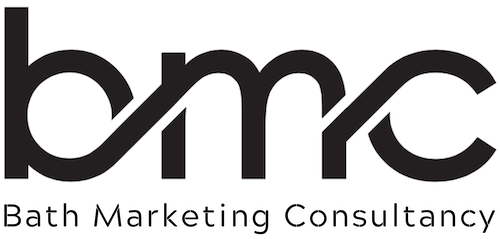In an era dominated by social media, paid ads, and AI-driven marketing, many business owners still ask the same question: Is business blogging worth the effort?
The short answer is yes—but only when it’s done strategically.
Business blogging remains one of the most effective long-term digital marketing tools for building authority, improving SEO, and generating consistent, high-quality leads. Unlike short-lived campaigns, a well-optimised business blog continues to deliver value long after it’s published.
In this guide, we’ll break down what business blogging really is, why it still matters, and how businesses—especially SMEs—can use it to drive sustainable growth.
What Is Business Blogging?
Business blogging is the practice of creating and publishing informative, relevant, and SEO-focused blog content to support business goals such as brand awareness, lead generation, customer education, and search engine visibility.
Unlike personal blogging, business blogging is:
- Strategically planned
- Data-driven
- Customer-focused
- Aligned with commercial objectives
A successful business blog answers customer questions, solves real problems, and positions your brand as a trusted authority in your industry.
Why Business Blogging Still Matters in 2026 and Beyond
Despite changing digital trends, blogging remains a core pillar of content marketing and SEO. Search engines still prioritise high-quality, helpful content—and blogs are one of the best ways to deliver it.
Key reasons business blogging still works:
- Search engines reward fresh, valuable content
- Blog posts attract organic traffic over time
- Blogs support long-tail keyword rankings
- Educational content builds trust and credibility
- Blogs fuel email, social media, and sales enablement
While ads stop working the moment budgets stop, business blogging compounds value over time.
Benefits of Business Blogging for Growth
When executed correctly, business blogging delivers measurable results across multiple areas of your business.
Improves SEO & Organic Visibility
Each blog post creates an opportunity to rank for relevant keywords, helping your business appear in search results when potential customers are actively looking for solutions.
Builds Brand Authority & Trust
Consistently publishing helpful insights positions your business as an expert—not just another service provider.
Generates Long-Term Leads
Well-optimised blogs continue to attract visitors months or even years after publication, creating a steady flow of inbound leads.
Supports the Buyer Journey
Blogs educate prospects at every stage—from awareness to decision—making conversions easier and more natural.
Enhances Other Marketing Channels
Blog content can be repurposed into social posts, email campaigns, landing pages, and sales materials.
Business Blogging vs Social Media: Which Is Better?
Both channels are important—but they serve different purposes.
| Business Blogging | Social Media |
|---|---|
| Long-term traffic | Short-term visibility |
| SEO-driven | Algorithm-dependent |
| Owned content | Rented platforms |
| Builds authority | Builds engagement |
| Compounding results | Temporary reach |
The most effective strategy combines both—but business blogging forms the foundation.
How Business Blogging Supports SEO
Business blogging is one of the strongest tools for improving SEO performance.
Blogging helps SEO by:
- Targeting long-tail and informational keywords
- Increasing topical authority
- Improving internal linking structure
- Reducing bounce rates with helpful content
- Supporting featured snippets and AI search results
Each blog post strengthens your overall website authority when optimised properly.
Business Blogging Best Practices
Successful business blogging starts with a clear strategy rooted in audience needs and search intent. Every blog post should be created with a defined purpose, whether that is to educate potential customers, improve search visibility, or support lead generation. Understanding what your audience is searching for and aligning content with those queries ensures your blog remains relevant and discoverable.
Keyword research plays a central role in effective business blogging. Each post should target a primary keyword, supported by related and semantic terms, and these keywords should be used naturally throughout the content. Over-optimisation should be avoided, as modern search engines prioritise readability and genuine value over keyword stuffing.
Content structure is another critical best practice. Well-organised blogs with clear headings, short paragraphs, and logical flow improve user experience and help search engines understand the content. Optimised headings not only guide readers but also strengthen SEO by reinforcing topical relevance.
Consistency is essential for long-term success. Publishing high-quality content on a regular schedule signals authority to search engines and builds trust with your audience. Even a modest but consistent blogging frequency can outperform irregular, high-volume posting.
Internal linking should be used strategically to connect blog content with relevant service pages and related articles. This improves site navigation, distributes page authority, and encourages users to explore your website further. External links to reputable sources also help reinforce credibility and trustworthiness.
Finally, effective business blogging is never static. Performance should be monitored using analytics to track traffic, engagement, and conversions. By continuously refining content based on real data, businesses can ensure their blogging efforts remain effective, adaptable, and aligned with long-term growth objectives.
How Often Should Businesses Blog?
There’s no universal rule, but consistency matters more than volume.
General guidance:
- Small businesses: 2–4 blogs per month
- Growing businesses: 4–8 blogs per month
- Competitive industries: Weekly or more
The key is quality, relevance, and optimisation—not quantity alone.
Common Business Blogging Mistakes to Avoid
Many businesses fail to see results from blogging because of avoidable mistakes:
- Writing without keyword research
- Focusing on promotion instead of value
- Ignoring SEO fundamentals
- Publishing inconsistently
- Not linking blogs to services or CTAs
- Treating blogging as a one-off task
Business blogging requires a long-term mindset.
Business Blogging for SMEs in the UK
For SMEs in Bath, Bristol, Somerset, and across the UK, business blogging offers a competitive advantage against larger brands.
Local benefits include:
- Improved local SEO visibility
- Ranking for regional search terms
- Building trust with local audiences
- Supporting Google Business Profile content
- Establishing authority in niche markets
When combined with local SEO, blogging becomes a growth multiplier.
How to Build a Business Blogging Strategy
A successful business blogging strategy follows a structured process:
Define Goals
Traffic, leads, brand awareness, or authority.
Keyword & Topic Research
Identify what your audience is searching for.
Content Planning
Create a blog calendar aligned with business services.
SEO Optimisation
Optimise titles, headings, internal links, and metadata.
Measure & Improve
Track rankings, traffic, engagement, and conversions.
Strategy turns blogging from a cost into an investment.
Frequently Asked Questions About Business Blogging
What is business blogging?
Business blogging is the creation of strategic blog content designed to support SEO, lead generation, and brand authority.
Is blogging still effective for businesses?
Yes. When SEO-focused and consistent, blogging remains one of the highest ROI digital marketing channels.
Does business blogging help SEO?
Absolutely. Blogging supports keyword rankings, topical authority, and organic visibility.
Is business blogging worth it for small businesses?
Yes. SMEs often see significant returns because blogging levels the playing field against larger competitors.
How Bath Marketing Consultancy Supports Business Blogging
At Bath Marketing Consultancy, we help businesses turn blogging into a measurable growth engine—not just content for content’s sake.
Our approach includes:
- SEO-led business blogging strategies
- Keyword and competitor research
- High-quality, conversion-focused content
- Ongoing optimisation and performance tracking
We work with businesses across Bath, Bristol, Somerset, and the wider UK to create blogs that rank, convert, and support long-term growth.
Ready to Build a Business Blogging Strategy That Delivers Results?
If you’re ready to stop guessing and start growing, a strategic approach to business blogging can make all the difference.
👉 Get expert support with your business blogging strategy and turn content into consistent growth.



